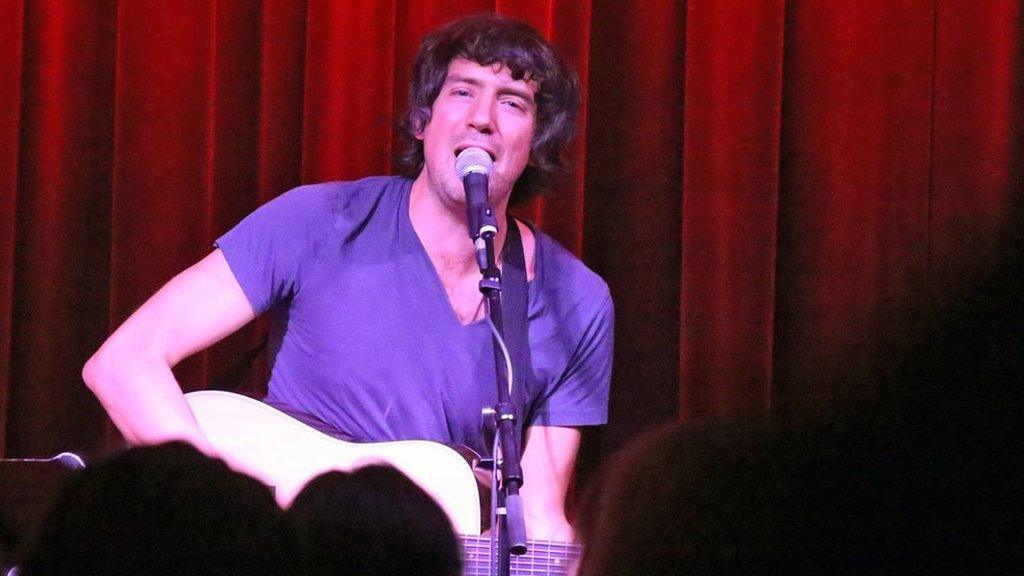Snow Patrol star opens up about depression
- Published
Gary Lightbody: "Depression is something I've fought my whole life"
Snow Patrol star Gary Lightbody has opened up about his struggle with depression, saying he "used to think about not existing".
The singer, whose hits include Chasing Cars and Run, said he had been battling the condition since he was a teenager.
"Winston Churchill had a great name for depression: His black dog," he told the Telegraph, external.
"I think that was probably it. It was just an animal of some sort that just lived with me. And that frightened me."
The 41-year-old said he reached a turning point in 2016, when he was diagnosed with infections in his sinuses, eyes and ears - a result of sustained drug and alcohol abuse.
Getting sober forced him to focus on his mental health - but that triggered a "wave of self-hatred", which made him retreat from the outside world.

Snow Patrol's hits include Run, Chocolate, Take Back The City and Chasing Cars
Speaking separately on Jo Whiley's Radio 2 show, the star said it was only the persistence of his friends and family that helped him emerge.
"Plenty of people reached out to me to try and find me in my darkness," he said.
"Bless their hearts for doing that. It means a lot to me now - but at the time I felt hurried. I wanted to stay in the place I was in."
Lightbody said his depression was triggered by growing up in Northern Ireland amidst the sectarian violence of the 1970s and 80s.
"I just used to think, 'I don't want to be here.' And that took root. And it's something I've fought with my whole life."
When he reaches a low, he told Jo Whiley, it feels "like nothing makes sense and there is no light".
"Trying to write in that place is extremely difficult, you have to kind of get out of that place before you can write about it."
The star, who has written with Taylor Swift and Harry Styles, as well as for his own band, said his most recent episode of depression triggered a four-year period of writer's block.
That resulted in a seven-year gap between Snow Patrol albums - but the group recently returned with the aptly-titled single Don't Give In.
Allow YouTube content?
This article contains content provided by Google YouTube. We ask for your permission before anything is loaded, as they may be using cookies and other technologies. You may want to read Google’s cookie policy, external and privacy policy, external before accepting. To view this content choose ‘accept and continue’.
Lightbody says it was originally written "about a friend going through a tough time", but he eventually realised "it was about me and the struggle of making the album, coupled with the struggle with depression I've had since I was a kid".
"It has become the talisman of the album," he said. "The song that became a self-fulfilling prophecy."
The single precedes the band's seventh album, Wildness, which also contains a song dedicated to Lightbody's father, who is living with dementia.
"Some of it is heavy stuff," he told Jo Whiley. "But I don't think the album feels like a heavy record. I think it is quite a hopeful record."
Snow Patrol will preview the album at gigs in London and New York this month, followed by an Irish tour in May. They will also play the Coventry leg of BBC Music's Biggest Weekend on Sunday, 27 May.

Follow us on Facebook, external, on Twitter @BBCNewsEnts, external, or on Instagram at bbcnewsents, external. If you have a story suggestion email entertainment.news@bbc.co.uk, external.

- Published2 April 2018

- Published15 November 2011

- Published7 January 2018
